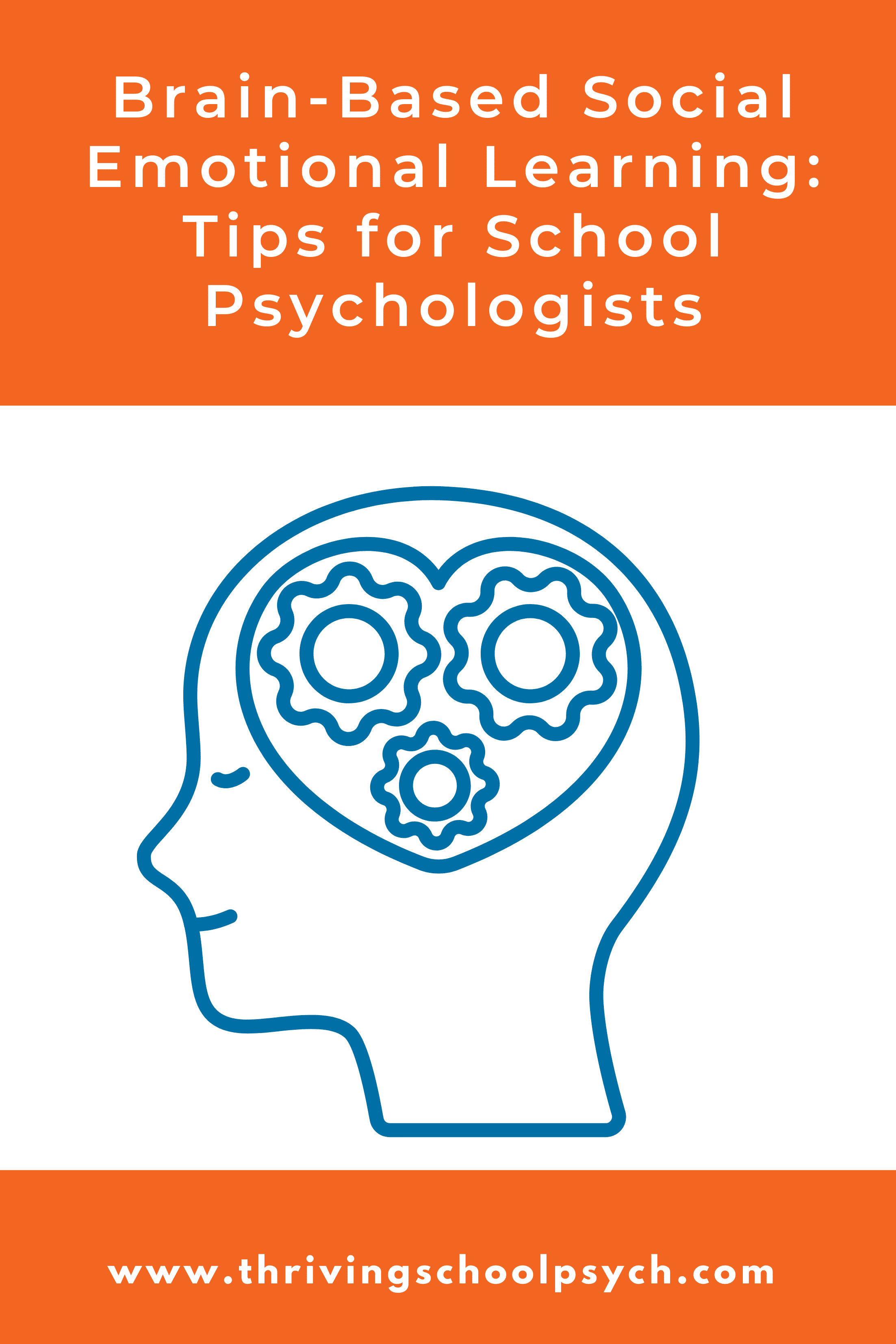
School psychologists are in the important position of being a support and consultant for teachers and parents of children who struggle with social-emotional learning (SEL) and behavioral regulation.
In the Thriving School Psychologist Collective online course, we are always on the lookout for resources for one another (because let’s face it, sometimes the best PD is another school psych, am I right?).
A few months ago, on our monthly Thriving School Psychologist Zoom call, members of the TSP wanted to know more about promoting research-based SEL.
Thriving School Psychologist Collective members wanted more tools and resources on brain-based SEL so they would be better consultants with parents and teachers to support student’s social-emotional and behavioral development.
I could think of no better person to talk about this with us than Tina Payne Bryson, psychologist and best selling author of multiple parenting books, including the Whole Brain Child, The Yes Brain, and No Drama Discipline.
And (humble brag time) I interviewed her back in December for my Coffee Break School Psychology YouTube show waaaaaayyyyy before the freakin’ Good Morning America show did. What can I say? I know awesome talent when I see it! 😉
In this 31-minute coffee chat, we talk about brain-based strategies for teaching critical social-emotional learning (SEL) to students who need support in self-regulation (and indeed, all children!). Without further ado, Coffee Break SEL!
If you’re short on time, you can jump to the following timestamps:
:50 – I introduce Tina and her ground-breaking books on brain-based parenting.
2:14 – I ask Tina what school psychologists need to know about brain-based research for social emotional learning.
3:01 – Tina talks about “Chasing the Why” and how that came about.
6:45 – Tina talks about her discoveries around her students’ diagnoses.
8:40 – I talk about how school psychologists can use the concepts Tina is talking about and can collaborate with teachers to help kids self-regulate.
10:30 – Tina talks about the “connect and redirect” strategy for helping kids return to a calm state for learning.
13:08 – Tina describes how the right and left hemispheres of the brain work when it comes to emotions.
13:52 – Tina talks about how to help kids regulate their behavior through connection.
14:56 – Tina gives an example of how NOT to deal with a child who is dysregulated.
17:00 – Tina and I talk about why it usually fails to use discipline behavior management “in the moment.”
18:19 – Tina explains how “Chasing the Why” helps kids learn to self-regulate.
19:35 – I look at what Tina described from a school psychologist/parenting point of view.
21:50 – Tina talks about school psychologists using modeling when they are sharing tools for helping kids with teachers.
23:15 – Tina talks about imagining kids’ emotions as a volume dial, and how to help modulate that emotional volume.
24:30 – We talk about the “4S” approach to teaching self-regulation.
29:00 – Tina talks about secure attachment and how it is vital for making kids feel safe and heard.
30:25 – I talk about how inspiring the “4S” model can be for school psychologists.
31:30 – Tina and I talk about where Tina’s work can be found (including her brand new book, The Power of Showing Up) at www.tinabryson.com.
Thank you to Tina Payne Bryson for this informative and inspiring coffee chat! And stay tuned for the next coffee chat!
Take care,
Rebecca
Dr. Rebecca Branstetter is a school psychologist, speaker, and author on a mission to help public school psychologists manage their stress, improve their efficacy and enjoyment in their work, and prevent getting burned out so they can focus on what they love to do—being champions for helping children be the best they can be in school and in life and supporting educators and families.
Learn more about Dr. Rebecca Branstetter’s Thriving School Psychologist Collective online professional learning community and resources just for school psychologists at www.thrivingschoolpsych.com/mentor.
Thank you Dr. Bransletter for your dedication to your work! Your resources have been SO helpful to me and my fellow public school psychs! Keep it up!!
Thanks Lindsey! I’m so glad you’ve found the resources helpful. I do enjoy creating them! 🙂